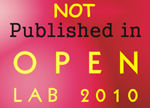The City of Lost Engrams
I was travelling back in time to an unreal place when The City appeared again after a long absence. It had been 16 months since we’d been together, and The City was not pleased. A vivid image of the security lines at the airport ushered me out of town to continue my journey to The Place That Doesn’t Exist.
A diabolical entanglement known as time has stolen memories from their homes in the dentate gyrus, lateral amygdala, precuneus, and elsewhere. These engrams hold the key to the past and the future. Without them – and their mysteriously stored representations – “we are condemned to an eternal present.”
Dwelling in the present is the path to enlightenment – “…the only moment to be alive is the present moment.”1 There is no past and no future. The amnesiac icon H.M. was the perfect being.
And yet, avoiding the past makes everything seem unreal. So does avoidance of an unlivable present. Perhaps I am preoccupied with a future of Other Deaths. That, I am not ready for.
The dead are neglected and forgotten by other people because their windows of tolerance are closed to further mourning. Their lack of reinforcement negates my grief. The opportunities for systems consolidation2 are waning.
Time. Avoidance. Neglect. They all silence my memories of The City.
I've had hundreds of involuntary visual images appear in my mind's eye like photographs, and I've documented all of them.
The images visit me rarely these days. They must be forcefully shaken from their torpor.
My passport expired 6 months ago. I finally noticed this recently.
I used to be able to cry, but now I can’t cry even though I want to.
Engram Cells
This meditation on memory, loss, and memory loss was inspired by a recent review article on memory engrams (Josselyn & Tonegawa, 2020). An “engram” is the neural substrate for storing and recalling memories. Futuristic “Inception-like” experiments in mice have shown that conditioned fear memories (tone-shock or context-shock associations) can be deleted or “inserted” by manipulating a functionally-defined class of neurons known as engram cells.
A pink engram cell alongside a white nonengram cell (modified from Josselyn & Tonegawa, 2020). Within the hippocampus, dentate gyrus cells were filled with a tracer to examine cellular anatomy (white). Engram cells active during fear conditioning were engineered to express the red fluorescent protein mCherry, which appears pink (because of overlap with the white tracer).
A primary truism of neuroscience is that memory storage is mediated by structural and synaptic plasticity. If engram cells are dedicated to preserving specific memories, the next question is: how do you define “a memory”? Most rodent studies search for engram cells associated with memories like “this location = bad”. But what about engrams formed after learning a list of words? Memories of Tomato, Attic, Pliers, Motorcycle, etc. are presumably represented by overlapping/distinctive groups of engrams distributed across multiple brain regions. What about complex autobiographical memories, like what you did on your 21st birthday? The full day (and night) of festivities consisted of many different events tied together by their temporal proximity and autobiographical significance. Studies of event perception and segmentation (Zacks, 2020) are informative in this regard:
What is the relationship between event structure in perception and that in memory? There is strong evidence that the segments that are identified during event perception correspond to the representational units in subsequent memory. First, the boundaries themselves are remembered exceptionally well. ... Second, event boundaries tended to occur at points in time when many features were changing, and the participants remembered those points better.
Life Beyond Engrams
The development of an appropriate animal model to allow selective manipulation of the whole-brain engram associated with one “birthday event” (but not the others) seems remote. Likewise, the often-involuntary nature of autobiographical memory retrieval (Bernsten, 2010) — in my case, the spontaneous appearance of visual images associated with loss and grief — is not illuminated by current engram research. Nor is the feeling of self-alienation that occurs when those memories start to fade.
Footnotes
1 “Dwelling in the present moment
I know this is a wonderful moment.”
–Thich Nhat Hanh, Being Peace [PDF]
“But the Present Moment usually isn't all that great,” I say.
2 Or contextual binding, depending on your degree of hippocampal dependence.
References
Berntsen D. (2010). The unbidden past: Involuntary autobiographical memories as a basic mode of remembering. Current Directions in Psychological Science 19(3):138-42.
Josselyn SA, Tonegawa S. (2020). Memory engrams: Recalling the past and imagining the future. Science 367(6473).
Zacks JM. (2020). Event Perception and Memory. Annu Rev Psychol. 71:165-191.
The Place that Doesn't Exist


I can’t remember the last time I was there. It seems like I was just there. I am always here.
All my lovers were there with me
All my past and futures
And we all went to heaven in a little row boat
There was nothing to fear and nothing to doubt
--Radiohead, Pyramid Song
(I can cry now)
Subscribe to Post Comments [Atom]
















3 Comments:
At first I wanted to ask.. "Are you... okay??", but then the article took a good turn - phew!
Thanks very much, I appreciate your concern.
Stopping by from the Soaring Spirits blog - thank you for sharing. I'm so interested to read more of your writing and perhaps during this COVID19 hibernation we are going through I'll have plenty of time! I'm sharing with my brother also, he is a very science minded person and I think he will really enjoy.
I've always wondered about the science of memory personally. My mom died when I was nine, and I have always noticed that I have very few memories of my time with her or of many things in my life before the age of nine. I notice others can recall their first nine years in so much more detail than I can. My whole life, I've wondered if there is some secret door that those memories are locked behind in my mind, due to the trauma of my mother's death. I've been curious even if some form of hypnotherapy could perhaps open doors I don't even know are there. It may just be wishful thinking, I suppose maybe I haven't tried because I don't want to be disappointed if it's not possible. If nothing else, it is a nice wishful thought to have.
Thanks again for sharing, and sending you lots of support with all you are going through.
Sarah
Post a Comment
<< Home